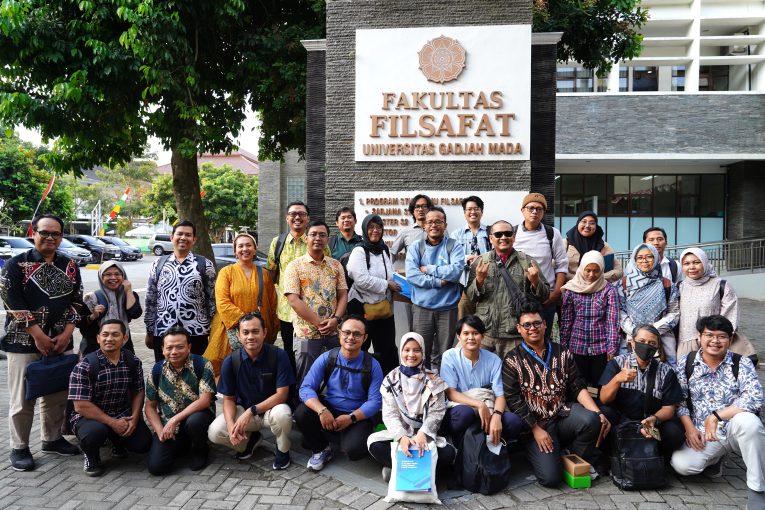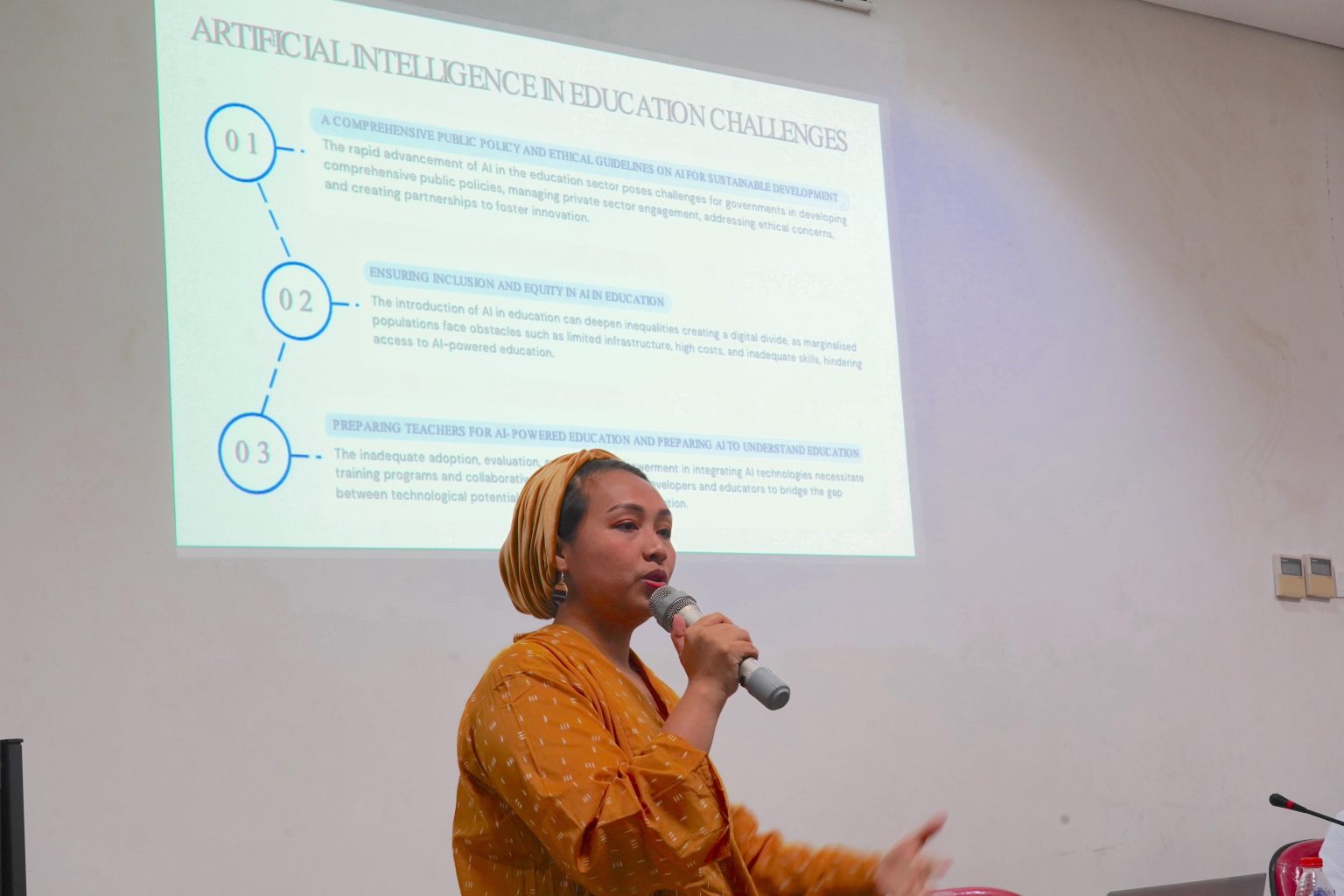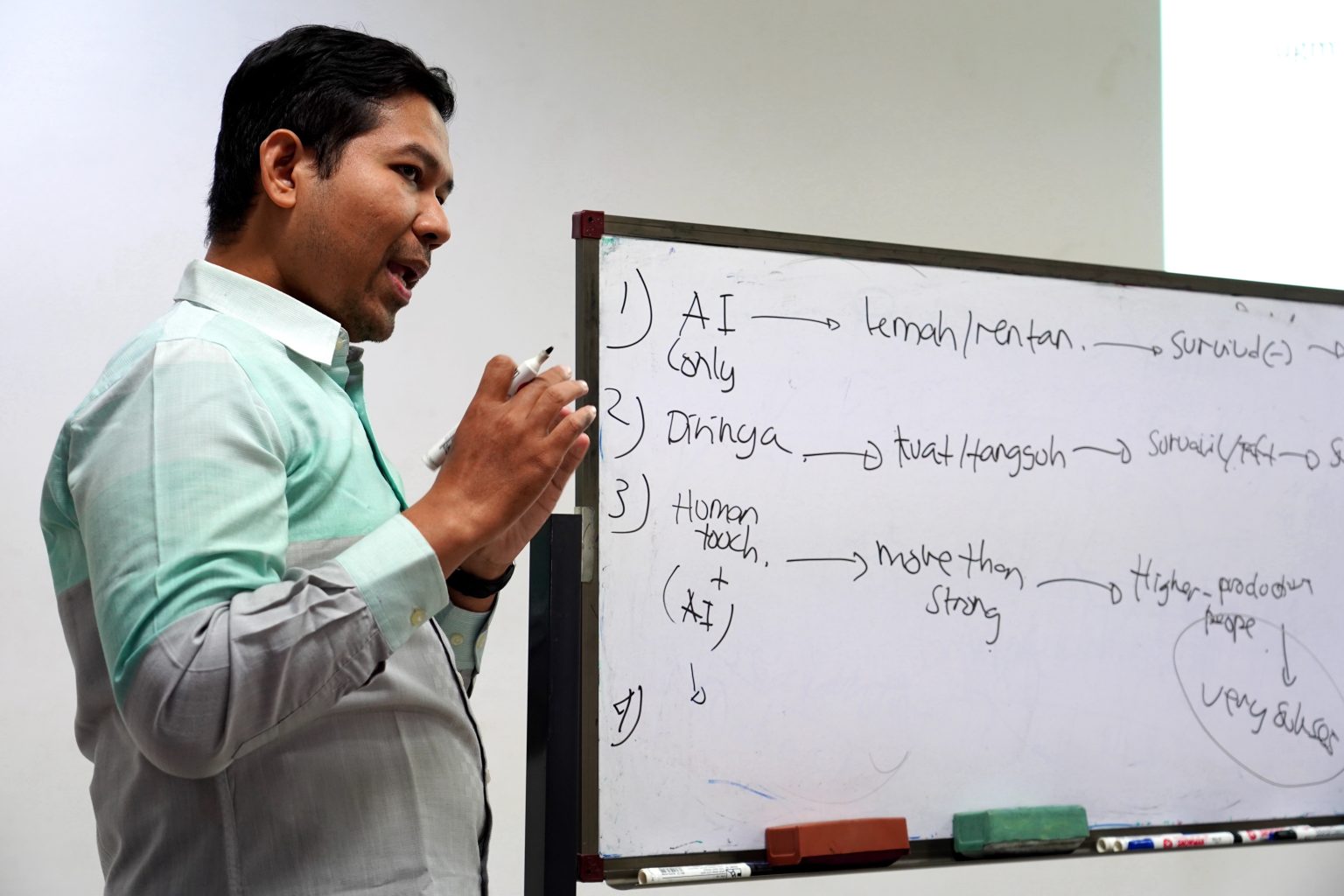
On 23-24 August 2023, UNESCO held an Ethics Teachers Training Course (ETTC) focused on AI ethics in Yogyakarta, in collaboration with the University Gadjah Mada.
The interactive event brought together 30 participants from various backgrounds and universities at UGM’s Faculty of Philosophy, to build capacity of professional lecturers on AI ethics, towards a responsible and inclusive AI technology for the future.
The theoretical part introduced global perspectives on ethics teaching, with trends, challenges, opportunities, pedagogy and psychology, and the philosophy of AI ethics in the Indonesian context of Pancasila. It presented UNESCO’s Recommendation on the Ethics of Artificial Intelligence launched in November 2021 and adopted by 193 Member States, including Indonesia.

UNESCO’s unique role in fostering an ethical and human-centered approach to AI is grounded in its educational, cultural and scientific mandate. The values and principles highlighted in the Recommendation strongly resonate with the Pancasila’s ideology in Indonesia.
Meyda Nento, Associate Project Officer for Social and Human Sciences, UNESCO Jakarta.
Teachers and lecturers have a great responsibility to educate the younger generation, especially to welcome Indonesia’s golden generation 2045. The Ethics Teachers Training Course initiative with UNESCO is part of the literacy effort involving multi-parties for the common good in regards to AI adoption and development, and we will continue this partnership with the vision of putting human valuesat the forefront.
Dr. Siti Murtiningsih, Dean of the Faculty of Philosophy, University Gadjah Mada.
Focus group discussions and teaching simulations highlighted thematic case studies and innovative teaching approaches, and encouraged exchange of perspectives and lessons learned in different fields, including education and research, health and social well-being, wildlife conservation, data policy, development and international cooperation.

We need a multi-layered, more balanced and inclusive approach to AI ethics. Our group’s teaching simulation focused on how to create more inclusive teaching environments for the students, so that they can be aware of the issues and apply ethics when using AI, to prevent misuse of AI in teaching and learning processes.
FX Risang Baskara, PhD, Universitas Sanata Dharma.
While teaching metaphysics of science, it is critical to think of how to use generative AI systems such as Chat GPT ethically, and how to communicate about the ethical dilemmas with the students, to avoid bias and inaccurate content.
Taufiqurrahman, Faculty of Philosophy, University Gadjah Mada.
I teach how to ethically write research proposals to students coming from various areas in Indonesia, and there is a gap in digital literacy and knowledge of AI progression. With this course, I hope to be able to teach with more anticipation and prevention, in line with international standards. The original ideas coming from our intellectual work are more important that the results generated by AI.
Dr. Riris Istighfari Jenie, M.Si. Apt, Faculty of Pharmacy, University Gadjah Mada.
The event was a pilot project for AI ethics within the framework of Ethics Teachers’ Training Courses (ETTC) that aims to reinforce ethics education in different academic fields such as bioethics, sciences, and technology. Moving forward, UNESCO will build on the event’s outcomes to further initiate and strengthen collaboration on AI ethics.
